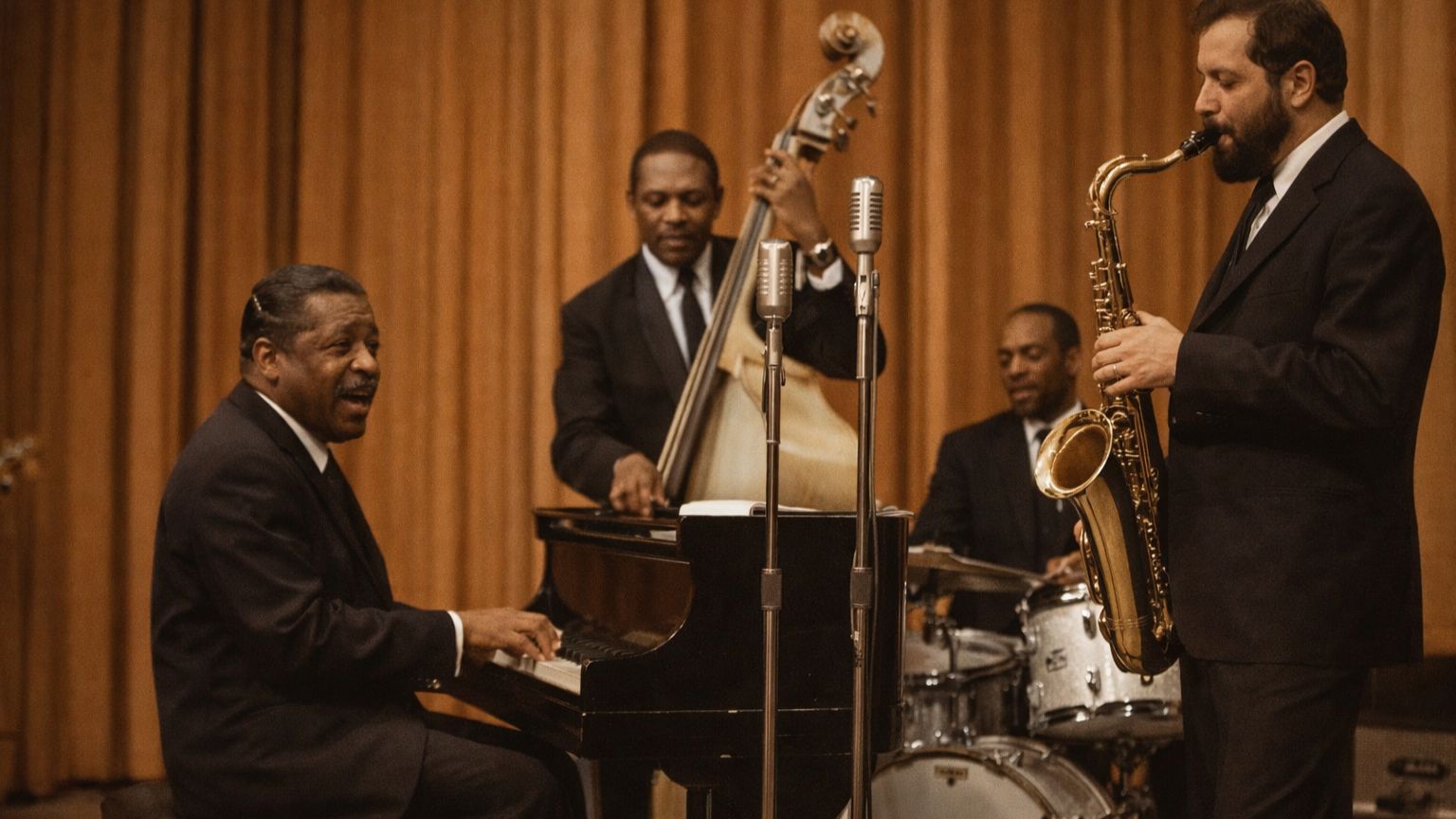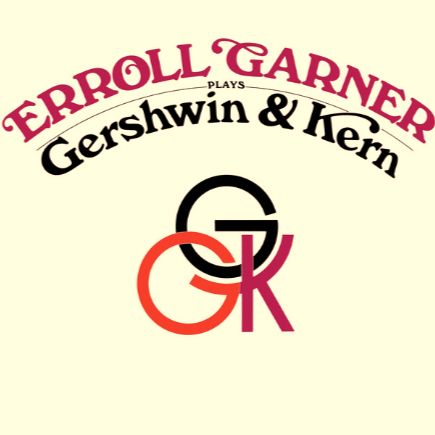Nice Work If You Can Get It: élégance swing et ironie sociale
Parmi les neuf chansons composées par George Gershwin pour le film A Damsel in Distress (Une demoiselle en détresse, 1937), Nice Work If You Can Get It, avec des paroles signées Ira Gershwin, s’impose comme l’un des grands classiques de l’époque.
Interprétée à l’origine par Fred Astaire, figure emblématique de l’âge d’or hollywoodien, la chanson s’inscrit rapidement dans le répertoire du jazz, devenant un standard à la fois raffiné et versatile. Écrite en pleine Grande Dépression, Nice Work If You Can Get It joue habilement de l’ironie. Sous ses allures légères, la chanson évoque un idéal de vie confortable et insouciante, inaccessible à la plupart des Américains de l’époque.
Pourtant, loin de sombrer dans le cynisme, elle célèbre avec charme et élégance l’aspiration au bonheur, portée par une mélodie vive et fluide au swing contagieux. Le texte d’Ira Gershwin, empreint de finesse et de second degré, oscille entre légèreté apparente et critique sociale implicite.
Erroll Garner, swing, panache et liberté
Le 5 février 1968 à New York, Erroll Garner enregistre une version pleine d’esprit et d’énergie de Nice Work If You Can Get It. Ce morceau devient ici, sous les doigts de Garner, un terrain de jeu rythmique et mélodique où la tradition rencontre l’improvisation libre. L’enregistrement figure sur l’album Erroll Garner Plays Gershwin & Kern, consacré à deux des grands noms de la chanson américaine, et témoigne de l’admiration de Garner pour ces compositeurs, qu’il interprète avec une liberté jubilatoire.
Entouré d’un groupe souple et réactif – Eddie Calhoun ou Charles ‘Ike’ Isaacs à la contrebasse, Kelly Martin ou Jimmie Smith à la batterie, et José Mangual aux congas – Garner se lance dans une lecture virevoltante du thème. Dès l’introduction, son style percussif s’impose, combinant swing entraînant, contretemps audacieux et ornementations imprévues. Le groove latin discret apporté par les congas renforce la pulsation, donnant au morceau une couleur inédite, entre tradition jazz et souffle caribéen.
Garner, fidèle à son approche sans partition, réinvente la forme à mesure qu’il la joue. Il module les dynamiques avec flair, crée des ruptures de tempo surprenantes et laisse des silences habités entre les phrases. Chaque reprise du thème est une variation, où se mêlent humour, lyrisme et pure virtuosité.
Nice Work If You Can Get It: elegancia swing e ironía social
Entre las nueve canciones compuestas por George Gershwin para la película A Damsel in Distress (Una dama en apuros, 1937), Nice Work If You Can Get It, con letra de Ira Gershwin, se impone como uno de los grandes clásicos de la época.
Interpretada originalmente por Fred Astaire, figura emblemática de la era dorada de Hollywood, la canción se integró rápidamente al repertorio del jazz, convirtiéndose en un estándar refinado y versátil. Escrita en plena Gran Depresión, Nice Work If You Can Get It juega con ironía e inteligencia. Bajo su apariencia ligera, evoca el ideal de una vida cómoda y despreocupada, inalcanzable para la mayoría de los estadounidenses del momento.
Sin embargo, lejos del cinismo, celebra con elegancia y encanto el deseo de felicidad, impulsada por una melodía viva y fluida con un swing contagioso. El texto de Ira Gershwin, lleno de sutileza y doble sentido, oscila entre ligereza aparente y crítica social implícita.
Erroll Garner, swing, estilo y libertad
El 5 de febrero de 1968 en Nueva York, Erroll Garner grabó una versión llena de ingenio y energía de Nice Work If You Can Get It. Bajo sus dedos, esta pieza se convierte en un terreno de juego rítmico y melódico donde la tradición se encuentra con la improvisación libre. La grabación forma parte del álbum Erroll Garner Plays Gershwin & Kern, dedicado a dos grandes nombres de la canción estadounidense, y refleja la profunda admiración de Garner por estos compositores, a los que rinde homenaje con una libertad jubilosa.
Rodeado de un grupo ágil y receptivo —Eddie Calhoun o Charles ‘Ike’ Isaacs al contrabajo, Kelly Martin o Jimmie Smith a la batería y José Mangual en las congas—, Garner aborda el tema con una interpretación vibrante. Desde la introducción, su estilo percusivo se impone, combinando swing contagioso, síncopas atrevidas y adornos inesperados. El discreto groove latino de las congas refuerza el pulso general, aportando al tema un color inédito entre tradición jazzística y aire caribeño.
Fiel a su enfoque sin partituras, Garner reinventa la forma a medida que la interpreta. Modula las dinámicas con soltura, introduce rupturas de tempo sorprendentes y deja silencios cargados de intención entre frases. Cada repetición del tema se convierte en una variación, donde se entrelazan humor, lirismo y pura virtuosidad.
Nice Work If You Can Get It: eleganza swing e ironia sociale
Tra le nove canzoni composte da George Gershwin per il film A Damsel in Distress (Una damigella in pericolo, 1937), Nice Work If You Can Get It, con testo di Ira Gershwin, si afferma come uno dei grandi classici dell’epoca.
Interpretata inizialmente da Fred Astaire, icona dell’età d’oro di Hollywood, la canzone entra rapidamente nel repertorio jazzistico, diventando uno standard raffinato e versatile. Scritta in piena Grande Depressione, Nice Work If You Can Get It gioca abilmente con l’ironia. Dietro un’apparenza leggera, evoca l’ideale di una vita agiata e spensierata, spesso inaccessibile alla maggior parte degli americani dell’epoca.
Eppure, lontano dal cinismo, il brano celebra con charme ed eleganza l’aspirazione alla felicità, sostenuto da una melodia vivace e fluida dal swing contagioso. Il testo di Ira Gershwin, ricco di finezza e di sottintesi, oscilla tra leggerezza apparente e critica sociale implicita.
Erroll Garner, swing, eleganza e libertà
Il 5 febbraio 1968 a New York, Erroll Garner incide una versione ricca di spirito ed energia di Nice Work If You Can Get It. Nelle sue mani, questo brano diventa un campo da gioco ritmico e melodico dove la tradizione incontra l’improvvisazione libera. La registrazione è inclusa nell’album Erroll Garner Plays Gershwin & Kern, dedicato a due grandi della canzone americana, e testimonia l’ammirazione sincera di Garner per questi compositori, interpretati con una libertà esuberante.
Affiancato da un gruppo agile e ricettivo —Eddie Calhoun o Charles ‘Ike’ Isaacs al contrabbasso, Kelly Martin o Jimmie Smith alla batteria e José Mangual alle congas—, Garner si lancia in una lettura vorticosa del tema. Fin dall’introduzione, il suo stile percussivo si impone, unendo swing travolgente, sincopi audaci e abbellimenti imprevedibili. Il groove latino sottile delle congas rafforza l’impulso ritmico, conferendo al brano una tinta inedita, a metà tra tradizione jazz e respiro caraibico.
Fedele al suo approccio privo di spartito, Garner reinventa la forma mentre suona. Modula le dinamiche con eleganza, crea sorprendenti rotture di tempo e lascia silenzi espressivi tra le frasi. Ogni ripresa del tema è una variazione, dove si fondono umorismo, lirismo e pura virtuosità.
Nice Work If You Can Get It: swing elegance and social irony
Among the nine songs composed by George Gershwin for the film A Damsel in Distress (1937), Nice Work If You Can Get It, with lyrics by Ira Gershwin, stands out as one of the era’s great classics.
Originally performed by Fred Astaire, an icon of Hollywood’s golden age, the song quickly entered the jazz repertoire, becoming a refined and versatile standard. Written during the depths of the Great Depression, Nice Work If You Can Get It cleverly plays with irony. Beneath its light and breezy surface, the song evokes an ideal of comfort and carefree living that remained out of reach for most Americans of the time.
Yet far from cynical, it gracefully celebrates the pursuit of happiness, carried by a lively, fluid melody with an infectious swing. Ira Gershwin’s lyrics, full of subtlety and double meaning, balancing apparent lightness with implied social critique.
Erroll Garner, swing, flair, and freedom
On February 5, 1968, in New York, Erroll Garner recorded a spirited and energetic version of Nice Work If You Can Get It. In Garner’s hands, the piece becomes a rhythmic and melodic playground where tradition meets free improvisation. The recording appears on the album Erroll Garner Plays Gershwin & Kern, a tribute to two giants of American song, and reflects Garner’s deep admiration for these composers—interpreted here with exuberant freedom.
Backed by a responsive and flexible group —Eddie Calhoun or Charles ‘Ike’ Isaacs on bass, Kelly Martin or Jimmie Smith on drums, and José Mangual on congas— Garner dives into the theme with a dazzling reading. From the outset, his percussive style takes center stage, combining infectious swing, bold syncopations, and unexpected ornamentation. The subtle Latin groove added by the congas enhances the pulse, giving the piece a fresh hue between jazz tradition and Caribbean flair.
True to his no-sheet-music approach, Garner reinvents the form as he plays. He modulates dynamics with flair, introduces surprising tempo breaks, and punctuates phrases with expressive silences. Each return to the theme becomes a variation, where humor, lyricism, and pure virtuosity come together.

generated by ChatGPT (AI)

